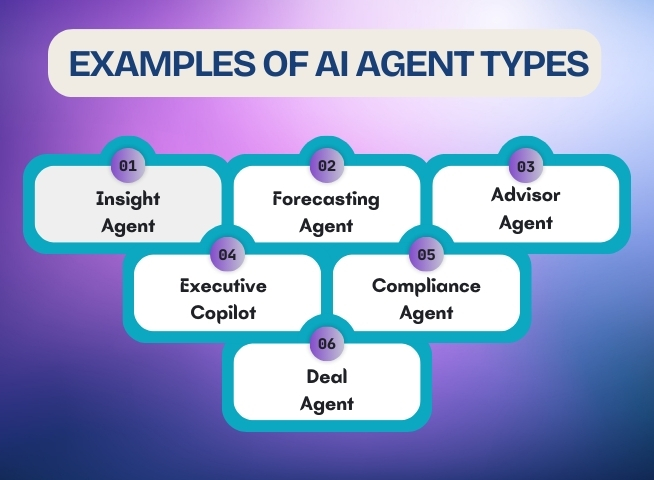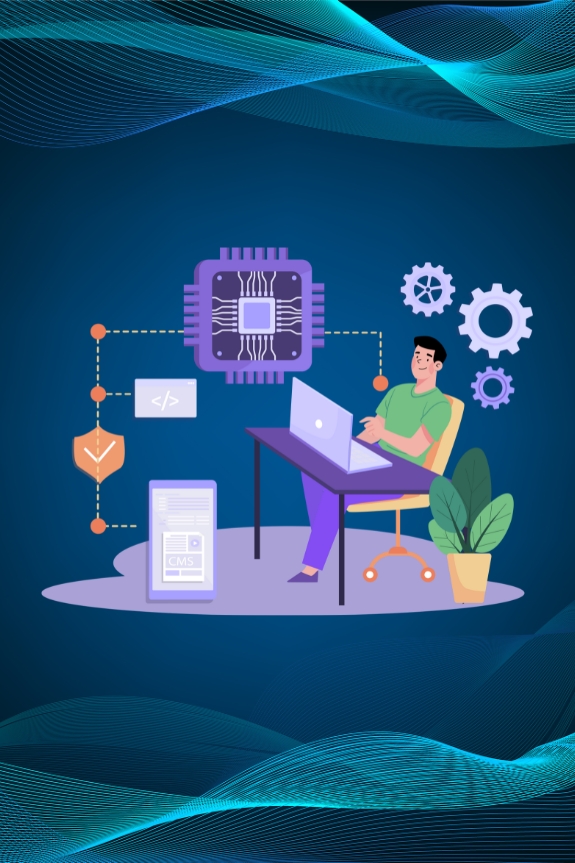The New Era of Executive Decision-Making
In the past, the role of a CXO was defined by experience, intuition, and the ability to interpret reports prepared by teams. But in today’s digital-first world, the landscape has changed.
Data is produced at a speed and volume no human team can fully process. Market trends shift in days, customer preferences evolve overnight, and risks from cybersecurity threats to supply chain disruptions can surface without warning.
For today’s CXOs, the challenge is not just accessing information, it is making sense of it in real time and acting with precision. This is exactly where AI Agents are beginning to redefine executive leadership.
AI Agents are not just tools; they are autonomous systems that analyze, learn, and take proactive actions. Unlike traditional dashboards or analytics platforms, AI Agents can continuously process data, highlight what matters most, and even recommend or execute decisions.
For CXOs, they serve as a digital co-pilot in strategy and operations, bringing clarity to complexity.
What are CXOs?
CXOs is a collective term referring to C-level executives in an organization, the most senior leaders whose titles typically start with “Chief” and end with “Officer.”
The “X” in CXO stands for a variable, representing various executive functions.
| Role | Full Title | Area of Responsibility |
|---|---|---|
| CEO | Chief Executive Officer | Overall leadership and vision |
| CFO | Chief Financial Officer | Finance, Budgeting, Risk |
| COO | Chief Operating Officer | Operations, Execution, Logistics |
| CTO | Chief Technology Officer | Tech innovation, Product architecture |
| CIO | Chief Information Officer | IT systems, Infrastructure, Data |
| CMO | Chief Marketing Officer | Marketing, brand, Customer growth |
| CHRO | Chief Human Resources Officer | Talent, Culture, HR operations |
| CISO | Chief Information Security Officer | Cybersecurity, Compliance |
| CPO | Chief Product Officer | Product roadmap |
What are AI Agents for CXOs?
AI agents for CXOs are intelligent, often autonomous, or semi-autonomous systems that:
- Analyze large volumes of structured/unstructured data.
- Provide real-time insights and recommendations.
- Automate repetitive or analytical tasks.
- Interact via natural language (chat, voice, dashboards)
- Act as advisors, strategists, or digital assistants.
They can be custom-built or deployed via enterprise AI platforms. They are designed to augment decision-making, automate routine tasks, and surface insights to help executives be more strategic, responsive, and efficient.
Examples of AI Agent types

| Agent Type | Function |
|---|---|
| Insight Agent | Aggregates data across silos, delivers executive summaries |
| Forecasting Agent | Uses Machine Learning to model revenue, growth, or risk |
| Advisor Agent | Provides strategic recommendations based on data trends |
| Executive Copilot | Chat-style assistant that answers complex questions |
| Compliance Agent | Monitors for violations or anomalies in governance |
| Deal Agent | Flags high-value opportunities in markets, customers, or partners |
AI Agent use cases for CXOs
CEO
- Real-time business KPIs
- Competitive intelligence aggregation
- Board meeting preparation
CFO
- Financial forecasting
- Cash flow optimization
- Predictive budget planning
COO
- Supply chain optimization
- Operational efficiency suggestions
- Real-time logistics visibility
CTO
- System health monitoring
- Tech stack optimization
- Cybersecurity threat detection
CMO
- Customer sentiment analysis
- Campaign performance prediction
- Market trend monitoring
CHRO
- Workforce planning
- Attrition risk modeling
- HR operations
The Benefits: From Insights to Impact
One of the most powerful contributions of AI Agents is their ability to make strategy more data driven. AI agents provide real-time business visibility enabling cross-functional alignment, informed and scenario-based decisions.
They also bring speed to leadership. In industries where market conditions change daily, waiting weeks for reports is no longer viable. AI Agents process live data streams, helping CXOs respond instantly to disruptions, be it a supply chain delay, a security threat, or a sudden dip in customer engagement.
AI Agents assist in risk management. By spotting anomalies and predicting potential threats, they give leaders time to act before risks escalate. For instance, a financial AI Agent can flag unusual spending patterns that hint at fraud, while an IT-focused AI Agent can detect a cyber vulnerability before it turns into a breach. This helps with fewer surprises, stronger governance, and improved resilience.
AI Agents deliver operational efficiency. Tasks like compliance checks, reporting, and performance monitoring are automated. This frees up valuable executive time, allowing leaders to focus on strategy, growth, and innovation.
Adopting AI Agents creates a competitive advantage. Companies that leverage AI Agents tend to reach markets faster, respond to emerging trends swifter and innovate quicker.
The real advantage of AI Agents lies in their ability to continuously learn. Unlike static tools, AI Agents adapt to new data, evolving markets, and shifting business needs. Over time, they become more accurate, more personalized, and more valuable to the decision-making process.
Real-World Impact Across the C-Suite
The transformative potential of AI Agents is shaping executive roles:
- For CEOs, AI Agents act as a radar for the entire business ecosystem. They continuously monitor competitor moves, customer sentiment, and industry developments offering CEOs the foresight needed to lead with confidence.
- For CIOs and CTOs, AI Agents are essential in IT operations and digital transformation. They detect anomalies in complex IT systems, initiate self-healing processes, and optimize cloud resources, ensuring reliability and efficiency.
- For CFOs, AI Agents take forecasting to the next level. They provide real-time cash flow predictions, monitor financial compliance, and even recommend investment opportunities based on market data.
- For CMOs, AI Agents act as a digital partner for customer understanding. From tracking consumer behavior to personalizing campaigns and monitoring brand reputation online, they help marketing leaders connect with customers in smarter ways.
In each case, AI Agents are not replacing leaders but amplifying their ability to act strategically.
Challenges in Adoption
Integrating AI Agents into executive workflows is not without challenges. Data privacy and security remain top concerns, as sensitive company information must be safeguarded.
Integration with existing legacy systems can also be complex.
Implementing effective AI agents often requires custom development or configuration, clean and unified data pipelines, and ongoing model tuning. This can be costly.
Another challenge is trust. For many leaders, relying on an AI Agent’s recommendation requires a cultural shift. Building this trust involves transparency in how AI makes decisions and ensuring accountability frameworks are in place.
Risk of losing human judgment, ethical reasoning, or creative insight, especially in nuanced or ambiguous situations, is of concern.
AI agents are only as good as the data they are trained or fed with. If data is outdated, incomplete, or biased, it can lead to misleading insights or flawed recommendations.
CXOs must manage organizational change. Employees and stakeholders need to be guided in adopting AI-driven workflows, which require communication, training, and strong leadership.
The Future of AI Agents in the Boardroom


As digital transformation accelerates, AI Agents are poised to become indispensable members of the C-Suite. The future of AI agents for CXOs is about redefining executive leadership itself.
AI agents are evolving from simple assistants into strategic partners, capable of transforming how top executives operate in a complex, fast-moving business world. They will deeply understand each CXO’s goals, work style, preferences, proactively adapting and becoming personalized leadership support.
We can expect to see boardrooms where AI runs real-time simulations of strategic decisions, where multiple agents collaborate across departments to provide unified insights, and where leaders can simply ask questions in natural language and receive instant, data-backed answers.
Conversational interfaces will allow CXOs to interact with data, scenarios, and strategy in plain language, via voice, text, or AR/VR environments.
Agents will generate audit-ready reports, compliance tracking, and real-time board briefings. Ethical AI will be a co-pilot in moral decision-making.
AI-augmented leadership will become the new standard. Organizations that equip CXOs with AI Agents will be at a strategic advantage. The future CXOs who use AI will outperform those who do not. CXOs who embrace AI Agents will set the pace for their industries.
Best Practices for adopting AI Agents for CXOs
To ensure successful adoption, CXOs should:
- Begin with small pilot projects in high-value areas.
- Focus on quality data since AI is only as reliable as the data it consumes.
- Collaborate with IT and data teams for secure and seamless integration.
- Continuously track ROI, measuring improvements in speed, efficiency, and decision accuracy.
By approaching AI adoption strategically, CXOs can maximize the value of AI Agents while minimizing risks.
Conclusion
For modern executives, success depends on making smarter, faster, and more data-driven decisions. AI Agents bring this capability to life, offering clarity in complexity, foresight in uncertainty, and efficiency in execution.
AI Agents empower CXOs to lead with greater confidence, precision, focus, and agility. The organizations that embrace AI Agents will not only solve today’s challenges but also shape tomorrow’s world.
The future of leadership is human + AI working together.


